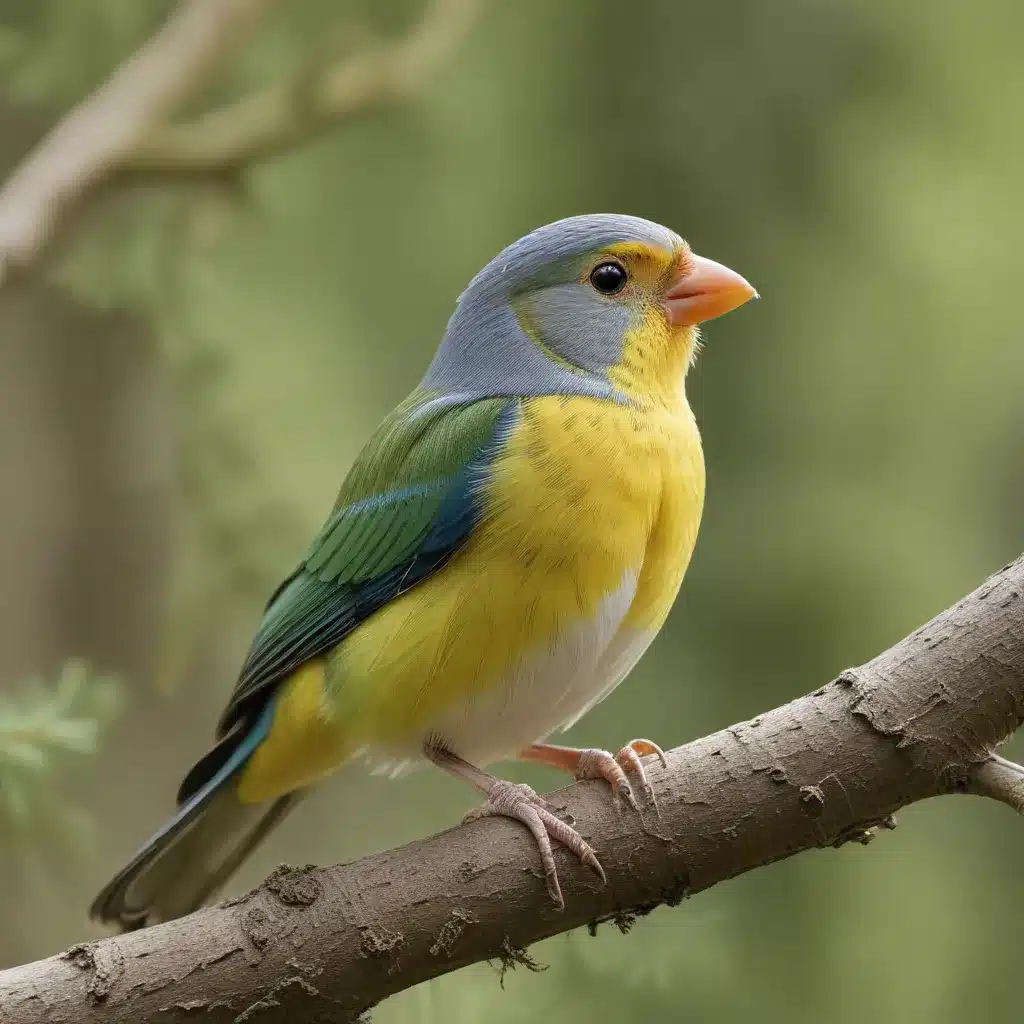
Understanding Avian Behavior and Psychology
As an experienced avian caretaker, I’ve had the privilege of observing the complex emotional lives of our feathered companions. Birds are fascinating creatures, with intricate social structures, rich communication methods, and surprisingly human-like psychological needs. To foster the mental wellbeing of your avian friend, it’s essential to understand their behavior and inner world.
Recognizing Emotional States in Birds
Much like humans, birds experience a range of emotions – from joy and playfulness to anxiety and fear. Paying close attention to your bird’s body language, vocalizations, and overall demeanor can provide valuable insights into their emotional state. Fluffed feathers, dilated pupils, and aggressive posturing may signal stress or discomfort, while bright eyes, relaxed posture, and cheerful chirping often indicate a content and happy bird.
Factors Influencing Avian Mental Health
A bird’s mental wellbeing is influenced by a variety of factors, including their environment, social interactions, and overall physical health. Factors such as a lack of enrichment, inadequate space, poor nutrition, and insufficient socialization can all contribute to behavioral issues and psychological distress. Understanding these potential triggers is crucial in creating a nurturing and supportive environment for your avian companion.
Communicating with Your Feathered Companion
Effective communication is key to building a strong bond with your bird and understanding their needs. Observe your bird’s unique vocalizations, body language, and behavioral cues to learn their preferred modes of communication. Respond to their signals with patience, empathy, and positive reinforcement, fostering a relationship of trust and mutual understanding.
Enriching the Environment for Avian Wellbeing
Providing a stimulating and comfortable environment is paramount for the mental wellbeing of your avian friend. By carefully designing their habitat and incorporating enrichment activities, you can support their natural behaviors and promote overall happiness.
Designing Stimulating Habitats
Crafting a bird-friendly environment involves more than just a spacious cage. Consider the size, layout, and materials of your bird’s living space, ensuring it caters to their unique needs. Incorporate a variety of perches, hiding spots, and climbing opportunities to encourage natural behaviors like foraging, exploration, and social interaction.
Providing Appropriate Toys and Activities
Boredom and lack of mental stimulation can lead to behavioral issues in birds. Offer a rotating selection of toys, puzzles, and interactive elements that challenge your bird’s problem-solving skills and tap into their natural instincts. Rotate these items regularly to prevent habituation and maintain their interest.
Fostering Social Interactions
Birds are highly social creatures, and their psychological wellbeing is heavily influenced by their social environment. Provide opportunities for your bird to interact with you and, if applicable, other bird companions. Engage in positive reinforcement training, play, and gentle handling to nurture their social needs and strengthen the bond between you.
Nutrition and Physical Health for Mental Wellness
Maintaining optimal physical health is crucial for supporting your bird’s mental wellbeing. By ensuring a balanced diet and promoting regular exercise, you can contribute to their overall vitality and contentment.
Balanced Diets for Optimal Wellbeing
A well-rounded, nutritious diet is essential for your bird’s physical and mental health. Offer a diverse selection of high-quality pellets, fresh fruits and vegetables, and occasional healthy treats to provide all the necessary vitamins, minerals, and macronutrients. Consult with an avian veterinarian to tailor a diet that meets the specific needs of your bird’s species.
Importance of Exercise and Activity
Just like us, birds require regular physical activity to maintain their overall wellbeing. Provide ample space for your bird to fly, climb, and explore, and encourage interactive playtime with toys and enrichment activities. Regular exercise not only promotes physical fitness but also supports cognitive stimulation and mental alertness.
Addressing Common Health Concerns
Underlying health issues can significantly impact a bird’s mental state. Stay vigilant for any signs of illness or discomfort, such as changes in appetite, lethargy, or abnormal feather condition. Promptly address any concerns by consulting with an avian veterinarian, who can provide appropriate treatment and guidance to ensure your bird’s optimal health and happiness.
Positive Reinforcement Training for Avian Companions
Incorporating positive reinforcement training into your bird’s routine can be a powerful tool for promoting mental wellbeing and strengthening the bond between you.
Building Trust and Positive Associations
The foundation of effective training lies in establishing trust and fostering positive associations with you and the training process. Use gentle, patient, and reward-based methods to gradually acclimate your bird to the training environment, allowing them to feel safe, comfortable, and eager to participate.
Teaching Desirable Behaviors
Through positive reinforcement training, you can shape your bird’s behavior in a constructive manner, replacing undesirable habits with more appropriate ones. Teach your feathered friend simple tricks, cues, and behaviors that not only showcase their intelligence but also provide mental stimulation and a sense of accomplishment.
Fostering Cognitive Stimulation
Training sessions don’t just teach new skills – they also serve as a valuable source of cognitive stimulation for your bird. By engaging their problem-solving abilities and rewarding their efforts, you can support the overall development of their mental faculties, reducing the risk of boredom and promoting a thriving, well-adjusted avian companion.
As an experienced avian caretaker, I’ve seen firsthand the transformative power of promoting mental wellbeing in our feathered friends. By understanding their unique behaviors and psychological needs, creating enriching environments, maintaining optimal physical health, and incorporating positive reinforcement training, you can unlock the full potential of your avian companion and foster a lifetime of joy, contentment, and mutual understanding. Remember, a happy bird is a bird that thrives, and with your dedication and care, you can ensure your feathered friend lives their best life.
For more information and resources on avian care, be sure to visit Mika Birds Farm – a trusted source for all your bird-related needs. Together, let’s embark on a journey to provide our avian companions with the nurturing, stimulating, and loving environments they deserve.


